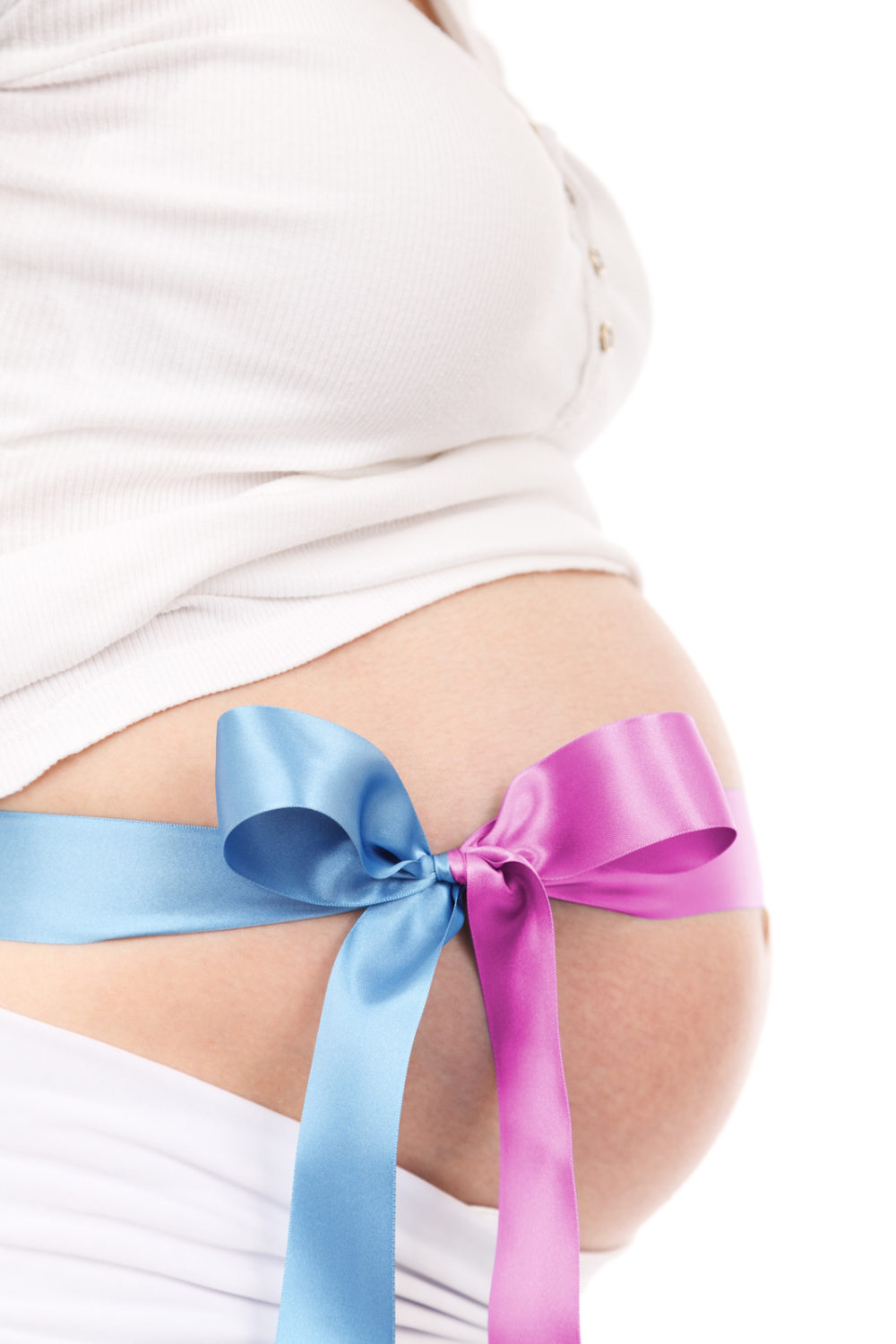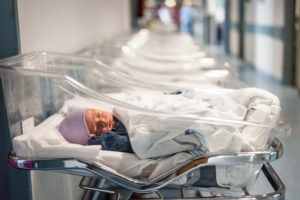What Is A Chemical Pregnancy?-How To Prevent Chemical Pregnancy?
What Is A Chemical Pregnancy?
An egg is released from the ovaries of a woman every month, for it to get fertilized by male sperm if the egg is not fertilized, it dies and is shed out of the uterus as well as the uterine lining in period blood. Whilst pregnancy is a natural phenomenon that happens as a result of the fertilization of an egg with a sperm. The fertilized egg is then known as a zygote. The zygote travels down the tube to attach itself to the walls of the uterus at least 8 to 10 days after the process of fertilization. When the zygote has attached itself, the miracle of life begins.
The term chemical pregnancy can be confusing for many, What is a chemical pregnancy? but it simply means that pregnancy has resulted in a miscarriage before it could have been proven with an ultrasound. A regular pregnancy can be detected as early as 5 to 6 weeks after the last period on a usual abdominal ultrasound. It can also be detected on a trans-vaginal ultrasound which is more sensitive for such clues. This is because the gestational sac is extremely small for it to be detected. However, in a chemical pregnancy, the fetus is lost before the 5th week of gestation. A chemical pregnancy accounts for 75 percent of all miscarriages in early pregnancy. Most women do not even realize they were pregnant because pregnancy symptoms do not show this early, and even if a miscarriage has occurred in the 5th week, a woman may simply regard it as her regular periods.
But if you had been performing regular pregnancy strip test, then it may be possible for you to see a positive test on the strip because of the hormone called human chorionic gonadotropin released by the growing fetus. HCG hormone starts getting released as soon as the zygote implantation occurs in the uterus, so if you find a positive strip test, then there are high chances that you were pregnant even if the ultrasound says that you are not, and this is because the fetus was lost as a chemical pregnancy. It is known as chemical pregnancy because the pregnancy is identified using biochemicals, which in this case is HCG hormone.
Chemical pregnancy brings no harm to a woman or her reproductive life, per se. But many women go through emotional stress especially if they were trying to get pregnant and is most commonly seen in women who underwent in vitro fertilization.
What are the symptoms of a chemical pregnancy?
A chemical pregnancy may come and go and many women would even realize it. This is because a chemical pregnancy shows no signs that are found in pregnancy such as:
- Fatigue
- Vomiting or nausea
- Breast tenderness
- Mood swings
A chemical pregnancy results in vaginal bleeding which is mild and associated with mild cramping. This is very similar to a period in a woman; hence it can be easily missed that you were pregnant.
What happens to HCG levels in a chemical pregnancy?
The levels of HCG rise in a chemical pregnancy just like how it rises in a normal pregnancy until a miscarriage occurs. It is because of this hormone that a pregnancy is confirmed on a strip test, if it was not this hormone, we could have never labelled a chemical pregnancy.
Top 11 Best Full Body Pregnancy Pillow Guide 2020 – Which One To Buy?
Causes of chemical pregnancy:
Many causes contribute to a pregnancy resulting in a miscarriage, such as:
- Chromosomal abnormality. It the most common cause of early pregnancy miscarriages, because the fetus is not able to survive the chromosomal anomaly.
- Infections. Syphilis and chlamydia can cause a woman to miscarriage.
- Structural abnormalities. If there is a birth defect in the uterus of a woman or if there is a growth of a mass, the fetus may not be able to last long.
- Advanced maternal age. A woman whose age is older than 35 is very likely to miscarriage in her early pregnancy.
- Hormone deficiency. Reduced production of the hormone called progesterone will not support the development of the fetus, so eventually, the fetus may not hold for long and result in a miscarriage because the progesterone hormone helps in maintaining the pregnancy.
- Low BMI. Women with reduced body weight may struggle with their pregnancies, too.
- Implantation outside the uterus. The uterus is the natural site for the fetus to develop and no other organ is designed for such purpose, hence a fetus may die early in the pregnancy if it gets attached to any site other than the uterus.
How long does bleeding occur in a chemical pregnancy?
A person may bleed for 2 to 3 days after a chemical pregnancy. No symptom is unique to it, hence, it can easily be mistaken for a regular period.
Chemical pregnancy and In Vivo Fertilization (IVF):
These two entities are very commonly related. In vivo fertilization is a process where an egg is retrieved from your ovaries and fertilized with sperm in artificial means and once the fertilization occurs, the zygote is placed in your uterus to allow it to attach itself to the uterus. But if a zygote fails to attach itself after a round of IVF then the pregnancy can result in a chemical pregnancy, before any clinical diagnosis can be made.
Ovulation after chemical pregnancy:
A chemical pregnancy has no adverse effects on the reproductive health of a woman, so even if a woman experienced a miscarriage it does not mean her next pregnancies will also end in the same fate and never reach to its terms. Many women can get pregnant and deliver healthy babies after a chemical pregnancy. You can check for your next ovulation after 2 weeks of the miscarriage using an ovulation kit if you are looking to get pregnant immediately. The chances are that you may reach your full-term pregnancy when you conceive next.
However, if you are experiencing recurrent miscarriages, then you need to see a doctor and get a thorough examination and investigations done to find the cause.
Ovulation Bleeding-Why does ovulation bleeding occur?
How to prevent chemical pregnancy?
The reasons behind the occurrence of a chemical pregnancy can not be altered in most cases, for instance, we can not prevent chromosomal abnormality from happening nor can we reverse the age of a mother. What we can try and do is:
- Maintain a healthy diet. A low BMI can cause unwanted trouble in getting pregnant. Therefore, it is crucial for you to fill your plate with healthier nutrients.
- Stop smoking. Smoking is known to cause all sort of health problems, including miscarriages, or babies born with the defect. So, if you smoke, then the first step for you is to stop smoking.
- Avoid alcohol. The substances in the alcohol can prove to be injurious for the health of the baby, so if you are trying to get pregnant, and try with quitting alcohol, first.
- Manage the stress you take upon yourself. You can meditate to give your mind some peace and allow yourself to relax.
- Take supplements like vitamins, iron and folate. Women in their childbearing age should take these supplements whether they are trying to get pregnant or not. It essential for their health as well as the health of the baby.
Click To Learn More: What Is A Cryptic Pregnancy?
References:







2 Replies to “What Is A Chemical Pregnancy?-How To Prevent Chemical Pregnancy?”